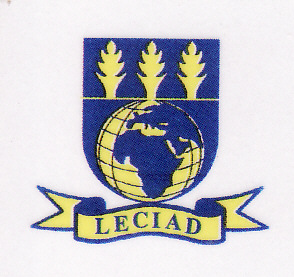This is designed to expose students to the techniques of seminar presentations on topical issues in the area of diplomacy, foreign policy, economics and political developments. It offers students the platform to lean the art of debates, arguments and discussions of cross-cutting issues in order to deepen their knowledge on wide range of thematic areas covering peace-keeping, economic diplomacy, protocol and etiquettes, the Sustainable Development Goals (SDGs), peace and security as well as bilateral and multilateral relations. |
The course aims to provide students with comprehensive knowledge and understanding of the critical role public policy plays in the workings of governments. It also builds students capacity in the design, formulation, implementation, monitoring and evaluation of public policies. The course begins by analyzing the contending definitions, types and nature of public policy. |
This course aims at developing students’ understanding of the critical concepts and practices associated with integration of states’ political, social, cultural and economies at the regional level. It begins by tracing the evolution, nature and trajectories of regional integrations. It examines important conceptual and theoretical assumptions underpinning the subject of regionalism, regionalization and integration. It discusses some of the enduring debates about the relevance of integration. |
This course is designed to provide students with a comprehensive knowledge about the nature and importance of the International Humanitarian Law (IHL). It also builds students’ capacity to understand the processes and applications of the IHL. It defines IHL as the body of public international law that regulates actors’ conduct during armed conflicts. The course explains why IHL is also referred to as Law of Armed Conflict (LOAC), Law of War or as Jus in Bello. |
The course is geared towards developing and deepening students’ knowledge and understanding of the saliency of foreign policy to nations’ development. It begins with a discussion of the theories of foreign policy and foreign policy analysis. It examines the nature, types as well as the processes for the formulation and implementation of countries’ foreign policy. The course contextualizes the discussion by making particular references to the determinants of Ghana’s foreign policy. |
This course is geared towards promoting students’ knowledge and understanding of the impact of technological innovations on the international system. It begins with explanations of terms such as science, technology and international relations and then examines their relationships. It then discusses the overall effect of material elements, technical instruments and scientific practices on international security, statehood and global governance. |
This course aims to develop students’ understanding of the theoretical and empirical orientation of foreign policy and its analysis. It also acquaints students with the necessary techniques about how diplomats formulate and carry out foreign policy in their countries. It begins with a rigorous discussion of the theoretical considerations of foreign policy and scholarly debates about the relevance of foreign policy for nations. |
This course is intended to deepen students’ knowledge and understanding of relevant contemporary issues that tend to impact on administrative efficiency. It delineates important features of bureaucratic organizations and determines their impact on government activities. The discussion also focuses on some conceptual issues that influence the functioning of the civil service such as independence, anonymity, permanence, impartiality, and neutrality. |
The course seeks to provide students with deeper understanding of how international institutions function within the global system. It examines the historical developments of international institutions in the context of the rise of the nation-states. The course also discusses the types, nature and key activities of international organizations. |
This course aims to sharpen students’ understanding of the political dynamics and their impacts on the international system. It examines some theoretical and conceptual tools relevant for analyzing the developmental issues that have shaped the thinking and practices of governments. The course profiles the political and economic systems of developed countries and measures their impact on the developing economies. |



